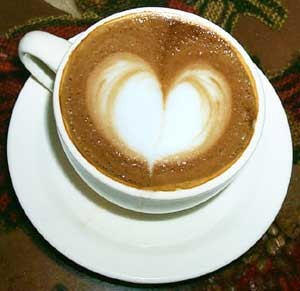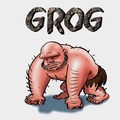Remember, No Coffee After Heart Surgery!
By Adam Pick on May 11, 2008
For all the Starbucks fans out there needing heart valve surgery, I have some difficult news to share with you.
Brace yourself… Here it is:
“Coffee is not recommended right after any form of cardiac surgery, including heart valve surgery.”

Yes, I know. That’s a tough one. I can personally relate to what you might be going through right now. I remember thinking, “WHAT? NO COFFEE!” as I was discharged from USC Medical Center after my aortic valve surgery. (Actually, it wasn’t that dramatic.)
FYI, I typically start everyday with some form of hot caffeine drink – coffee or chai tea. (Did you know 90% of adults in North America drink at least one caffeine-enhanced drink every day? And, did you know that caffeine was discovered by a German chemist in 1819?)
Anyways, after cardiac surgery it is highly advisable to let your central nervous system (and heart rate) not react to artificial stimulants, like the caffeine in coffee.
Don’t worry though… It’s not permanent. My cardiologist gave me the green-light to start drinking coffee a few weeks after my aortic valve replacement.
Keep on tickin!
Adam
|
Rosemary Geraci says on May 12th, 2008 at 11:14 am |
|
Well, if I have to, I’ll do it, but I WON’T LIKE IT! How long is the “average” aortic valve replacement patient on the ventilator after the procedure? That is my main fear and concern. |
 |
|
Al Barrs says on November 23rd, 2010 at 1:34 pm |
|
I had open heart surgery in 2007 to correct a hereditary coronary artery defect called a “pinched coronary artery”. The procedure used involved detaching an artery that supplied little to no blood to my heart from just below my coronary artery and grafting it downstream of the two pinched locations into my coronary artery. After my open heart operation, while still in the hospital I developed a heart arrhythmia. I was put on drugs and recovered normally. Later I realized that the arrhythmia returned when I drank several cups of regular coffee at breakfast. I switched to decaffeinated drinks and the arrhythmia seemed to go away. My family doctor and cardiologists didn’t relieve it was the caffeine that was causing the arrhythmia to flare up but eventually I was able to convince them when I stopped drinking highly caffeinated coffee, tea and soft drinks and the condition disappeared. Eventually they came around and admitted that I was probably right about the effect caffeine was having on my heart beat. |
 |
|
Robert Kingsbury says on March 4th, 2015 at 7:58 pm |
|
I had avr surgery Feb 5th of this year. I was barely on a ventilator at all. In fact as soon as I woke up in icu they removed my tube and I was breathing on my own. No problem for me at all. |
 |
|
quayy says on April 18th, 2015 at 4:27 am |
|
I just had aortic valve replacement surgery of 4/14/15….all the nasty stuff is remove before you wake up in recovery……….. |
 |
|
Andrea Garcia-Robb says on April 7th, 2018 at 6:06 am |
|
I get that about regular coffee but what about decaf? |
 |












